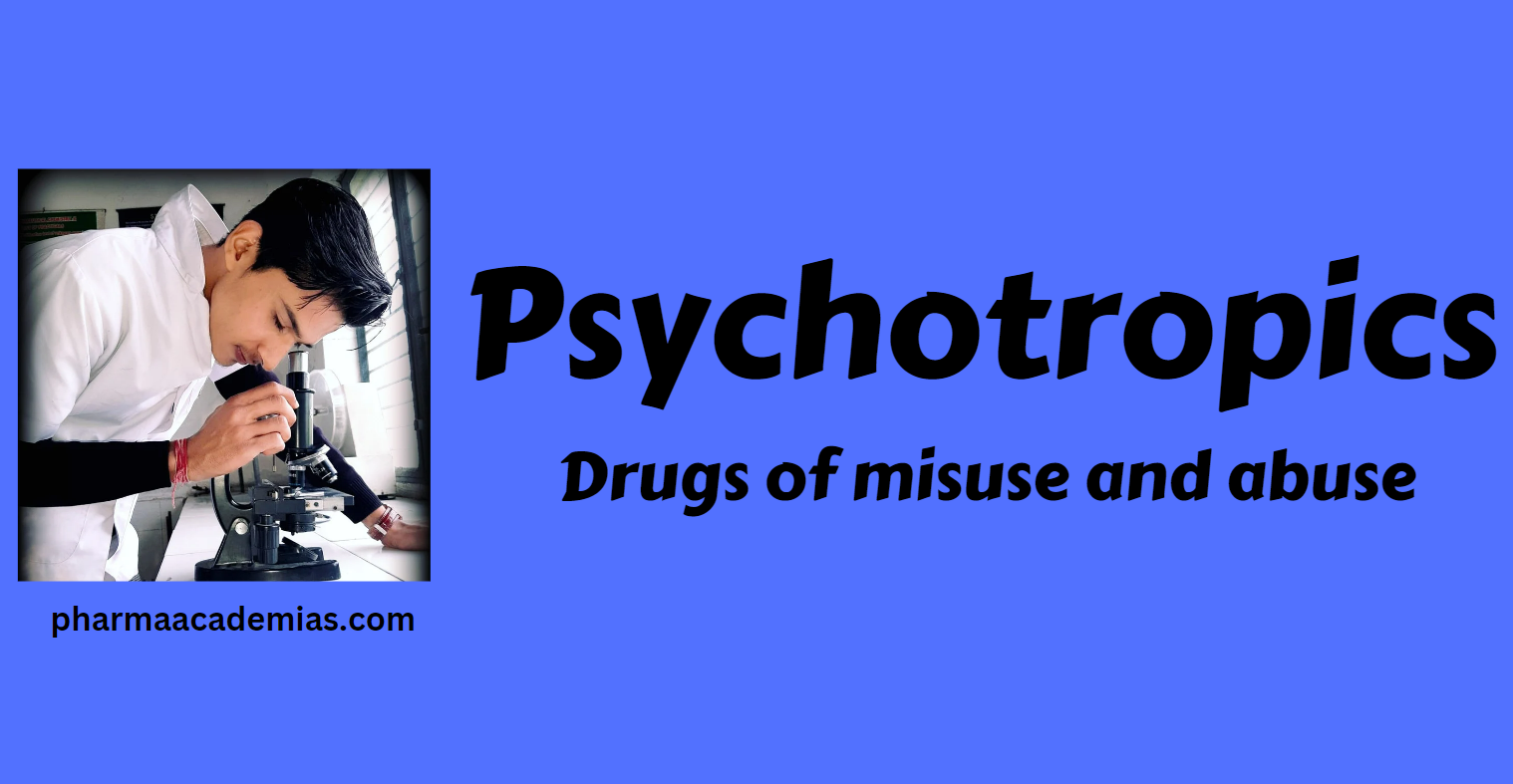Drugs of misuse
“Drugs of misuse” refer to substances used in ways other than intended, posing potential harm. This includes actions like using medications without a prescription, exceeding prescribed doses, or using them non-medically. Misuse doesn’t necessarily imply addiction but involves deviating from recommended guidelines, leading to negative consequences. Commonly misused drugs include prescription medications, over-the-counter drugs, and substances like alcohol. Prevention efforts focus on education, public awareness, and regulatory measures to control substance availability. Healthcare professionals educate about proper medication use, while monitoring and regulatory agencies enforce laws to minimize misuse opportunities.
Drug abuse
Drug abuse refers to the habitual and harmful use of substances, including both legal and illegal drugs. It involves the consumption of these substances in a manner that goes beyond prescribed or socially accepted norms, leading to negative physical, psychological, social, or legal consequences. Drug abuse is characterized by a pattern of behavior where an individual continues to use drugs despite the adverse effects on their health and well-being.
Psychotropics
Psychotropics refer to a class of drugs that affect mental processes, mood, and behavior by acting on the central nervous system. These drugs are commonly used in the treatment of various mental health disorders and conditions. Psychotropics can be categorized into different classes based on their primary effects, and they include:
1. Antipsychotics: Used to manage symptoms of psychosis, schizophrenia, and bipolar disorder.
2. Antidepressants: Prescribed to alleviate symptoms of depression and certain anxiety disorders.
3. Anxiolytics: Drugs that reduce anxiety and are often prescribed for anxiety disorders.
4. Mood Stabilizers: Medications used to stabilize mood, often in the treatment of bipolar disorder.
5. Stimulants: Typically prescribed to address attention-deficit/hyperactivity disorder (ADHD) and narcolepsy.
6. Hypnotics and Sedatives: Used for their calming or sleep-inducing effects.
7. Hallucinogens: Substances that alter perception, mood, and cognitive processes, often used recreationally or in religious practices.
These drugs interact with neurotransmitters in the brain, influencing the communication between nerve cells. The goal of psychotropic medications is to correct imbalances in neurotransmitter activity associated with various mental health conditions.
It’s important to note that while psychotropic medications can be valuable tools in treating mental health disorders, they should be prescribed and used under the guidance of healthcare professionals. Misuse or abuse of psychotropics can lead to adverse effects and may contribute to the development of substance use disorders. Monitoring, proper dosage, and adherence to prescribed regimens are critical elements in the safe and effective use of psychotropic medications.
Drugs of misuse and abuse of psychotropics
Individuals who inappropriately or excessively use substances altering mental processes, mood, or behavior, known as “drugs of misuse and abuse of psychotropics,” can experience negative consequences. Psychotropics, a category of drugs affecting the mind and emotions, encompass medications prescribed for legitimate medical purposes. However, misuse or abuse of these drugs poses serious risks to both physical and mental health.
Examples of psychotropic drugs
1. Opioids: These are powerful pain-relieving medications that can also induce euphoria. Opioid misuse and abuse can lead to dependence and addiction.
2. Benzodiazepines: These drugs are often prescribed for anxiety and sleep disorders. Misuse can lead to sedation, dependence, and withdrawal symptoms.
3. Stimulants: Physicians use medications such as methylphenidate and amphetamines to treat attention-deficit/hyperactivity disorder (ADHD) and narcolepsy. However, when used inappropriately, they can lead to increased energy, alertness, and a risk of dependence.
4. Antidepressants: While generally not considered highly addictive, some individuals may misuse or abuse antidepressants for their mood-altering effects.
5. Antipsychotics: These medications are used to treat conditions such as schizophrenia and bipolar disorder. Misuse can lead to sedation and other adverse effects.
6. Hallucinogens: Individuals may misuse certain psychotropic substances, such as LSD or psilocybin, for their hallucinogenic effects, potentially resulting in unpredictable and harmful experiences.
Efforts to address the misuse and abuse of psychotropic drugs involve a combination of preventive measures, education, and treatment strategies. Healthcare professionals play a crucial role in prescribing these medications responsibly, monitoring patients for signs of misuse, and educating individuals about the potential risks associated with these substances.
Prevention programs and public health campaigns aim to raise awareness about the dangers of misuse and abuse of psychotropic drugs. Treatment for individuals struggling with substance use disorders involving psychotropics often involves a comprehensive approach, including counseling, behavioral therapies, and, in some cases, medication-assisted treatment.

